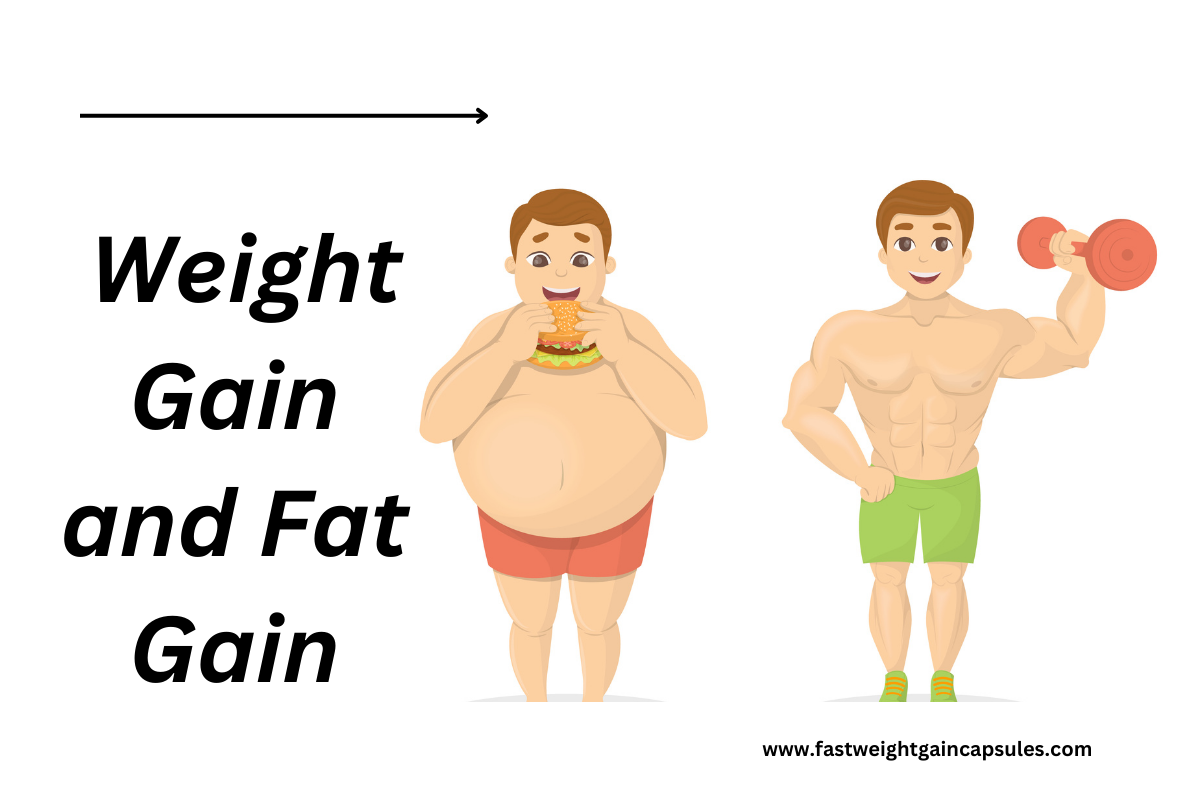Difference Between Weight Gain and Fat Gain

14 Mar, 2023
Difference Between Weight Gain and Fat Gain
Weight gain and fat gain are terms often used interchangeably, but they are, in fact, two different phenomena. Understanding the distinction between these concepts is crucial for individuals looking to achieve specific body composition goals, such as building muscle mass, losing body fat, or improving overall health. This comprehensive comparison will provide an in-depth look at the differences between weight gain and fat gain and how they relate to overall health and fitness.
Definition
Weight Gain: Weight gain refers to an increase in an individual's total body mass. This increase can result from several factors, including muscle growth, water retention, increased bone density, and, of course, fat accumulation. Weight gain can occur due to a caloric surplus, where an individual consumes more calories than they expend, or as a result of factors such as hormonal changes, medication side effects, or medical conditions.
Fat Gain: Fat gain specifically refers to an increase in an individual's body fat percentage, which is the proportion of fat mass in relation to their total body mass. Fat gain typically occurs when an individual consumes more calories than they burn, resulting in the excess energy being stored as adipose tissue, or body fat. Unlike weight gain, which can stem from various sources, fat gain is a more specific measure of changes in body composition.
Causes
Weight Gain: Weight gain can result from numerous factors, including:
- Increased muscle mass due to resistance training and proper nutrition
- Water retention, often caused by fluctuations in sodium intake, hydration levels, or hormonal changes
- Increased bone density, which can occur as a result of weight-bearing exercise or calcium and vitamin D supplementation
- Fat accumulation due to a caloric surplus, which can be intentional (e.g., for muscle-building purposes) or unintentional (e.g., as a result of poor dietary choices or lack of exercise)
Fat Gain: Fat gain is primarily caused by a caloric surplus, where an individual consumes more calories than they expend through their basal metabolic rate (BMR) and physical activity. This excess energy is stored as body fat. Factors that can contribute to fat gain include:
- Poor dietary choices, such as consuming excessive amounts of processed, high-calorie, and nutrient-poor foods
- Sedentary lifestyle or lack of physical activity
- Hormonal imbalances or medical conditions that can affect metabolism, appetite, or fat storage
- Certain medications that can increase appetite or alter metabolism
Health Implications
Weight Gain: Weight gain can have varying health implications depending on the source of the gain. For example, increased muscle mass can improve overall strength, metabolism, and physical fitness, while improved bone density can reduce the risk of osteoporosis and fractures. However, excessive weight gain, particularly in the form of fat accumulation, can lead to health issues such as obesity, type 2 diabetes, heart disease, and certain cancers.
Fat Gain: Fat gain, especially in the form of visceral fat (fat stored around the organs), can have numerous negative health implications. Excess body fat has been linked to increased risks of:
- Cardiovascular disease
- Type 2 diabetes
- High blood pressure
- Certain cancers
- Sleep apnea
- Fatty liver disease
- Hormonal imbalances
Assessment
Weight Gain: Weight gain can be assessed using a variety of methods, including:
Tracking changes in body weight using a scale
Measuring changes in body dimensions
Monitoring changes in clothing fit
Observing visible changes in muscle mass or body shape
Fat Gain: Fat gain can be assessed using several techniques, such as:
Body fat calipers to measure skinfold thickness
Bioelectrical impedance analysis
